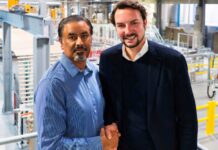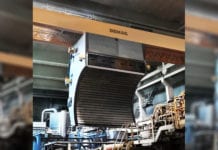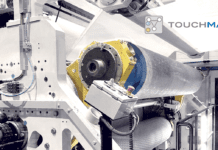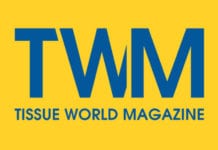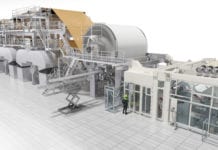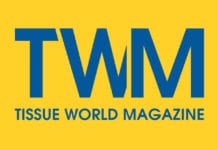News from RISI – Asia Pulp & Paper (APP) group has brought a total of eight tissue paper machines on stream at its mills in China and Indonesia this year.
However, that is just a fraction of the expansion it aims to carry out.
According to a senior APP executive, APP China has commissioned six 2.8m wide tissue machines at its pulp and paper complex on the Chinese island of Hainan, each having a capacity of 27,000tpy.
The identical six units were assembled by APP China’s subsidiary, Jinshun Machinery, with key components, such as headboxes, yankee dryers and hoods, imported from Europe.
The group also started up two 5.6m wide tissue PMs at the Perawang plant in Riau, Sumatra, Indonesia.
The two machines were supplied by A Celli, each featuring an 18-foot Steel Yankee dryer provided by Andritz and having a capacity of 60,000tpy.
These eight tissue PMs have a combined capacity of 282,00tpy, which has boosted the group’s total tissue capacity in the two countries from 1.7 million tpy as of the end of 2013 to nearly 2 million tpy now – to around 1.3 million tpy in China and 0.7 million tpy in Indonesia.
But the pace of expansion is a far cry from APP’s ambitious plans as drawn up in 2013, which called for the building of a total of 52 tissue machines in the two countries, with a whopping combined capacity of nearly 2.8 million tonnes to be added by 2016.
The aggressive plan changed form before too long.
The group scaled back on the expansion, putting more than half of the planned PMs on ice after reassessing the scheme in early 2014.
It has revised down the number of the proposed new PMs from 37 to 16 in China, while cutting them from 15 to nine in Indonesia.
The main factor behind the decision is overcapacity in the Chinese tissue industry, which has led to stagnant pricing and falling profitability.
According to surveys done by RISI’s Shanghai-based subsidiary, UM Paper, prices for the premium virgin fibre-based parent rolls have dropped from RMB 7,900/ tonne ago to around RMB 7,000/ tonne in the domestic market, which is equivalent to $978/tonne after deducting 17% VAT.
The overcapacity problem is expected to get worse following a flurry of new tissue investments in the Chinese market.
To get a market share, producers entering the sector have resorted to selling their wares at low prices on the domestic market, with parent rolls made from 100% woodpulp priced at around RMB 6,000/tonne – RMB 1,000/tonne cheaper than the existing premium grades.
And so despite the already drastic PM scale-back, APP is still in low gear in building new machines in China and Indonesia.
The APP contact indicated that the group will continue to erect new machines as laid out in the modified plan, but at a slower pace.
Two more 2.8m wide units supplied by Jinshun Machinery are being installed at the Hainan plant, with startup planned for next year.
In China there are still ten 60,000tpy PMs on the revised expansion list, with eight going to the Suzhou mill and two to be erected at the Xiaogan plant in the central province of Hubei.
In Indonesia, seven more 60,000tpy PMs are planned; six for the Perawang site and one for the Jambi mill, which is also located in Sumatra.
New European supplier:
In 2013, when APP laid out the plan to install 52 PMs, 40 of them were large 60,000ty units to be provided by European companies.
APP signed up three firms, A Celli, Voith and Valmet, under what all sides called handshake contracts, for the supply of the machines.
Many of the orders were not confirmed with down payments when the deals were struck.
But APP has now placed an order with another European supplier, Toscotec, for an even larger PM for the Perawang complex.
The unit will feature a double-press and a 22-foot Steel Yankee dryer, with a daily production rate of 192 tonnes, which is equivalent to nearly 70,000tpy.
Startup of the unit, set to be the world’s largest of crescent former, is scheduled for the first quarter of 2016.






















